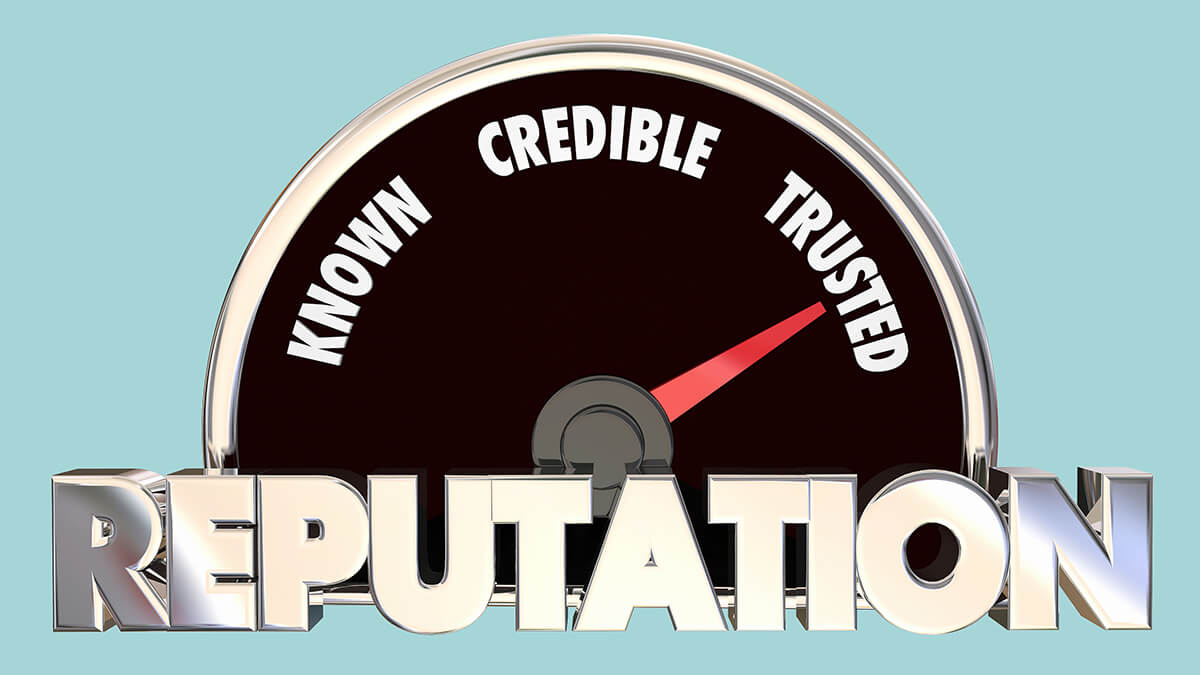Companies like Airbnb, eBay, Uber, and TaskRabbit have changed the way we travel, shop, get around, and get chores done. Adaptors of a new business model that facilitates commerce between individuals, these companies allow people to become micro-entrepreneurs, selling their goods or services directly to other individuals without the need for a store or even a personal website. But because the nature of these transactions is often so personal, success isn’t just a matter of offering something people want at a price they think is fair. It’s also about reputation.
Reputation, simply put, is how much a community trusts you. And reputation is becoming an increasingly valuable asset to individuals and larger businesses alike. In many ways, we’re at the dawn of the reputation economy.
What Is the Reputation Economy?
Any time you ride in an Uber or stay in an Airbnb, you are asked to rate your experience. Over time, the driver or host accumulates a large number of ratings, which are aggregated into a total rating. In the case of Uber and Airbnb, ratings are based on a zero- to five-star system. Other companies use different systems, but they all use some form of ratings that provide a snapshot of an individual’s reputation. If drivers, hosts, or sellers have a rating near the top, they’re considered to have a really good reputation. If they have a rating near the bottom, they’re considered to have a poor reputation.
The better the reputation, the more likely they are to get a lot of customers, and those customers are generally willing to pay more than they would for a similar product or service from someone with a less stellar reputation. Studies, such as a recent one conducted in Germany, show this to be true.1 But it also makes intuitive sense. After all, we want a quality product or service, and most of us are willing to pay a little more to ensure it. Ratings systems make it easy to determine who we can trust to do a good job and who we can’t.
That’s the reputation economy.
But individuals working through Uber and similar platforms aren’t the only participants. Restaurants have their reputation measured through sites like Yelp. Products from major companies are rated through sites such as Amazon and Google. There are even sites that allow people to rate doctors, lawyers, and other highly skilled professionals.
Additionally, we’re rated as customers. For example, our Uber driver rates how good of a passenger we were and our Airbnb host rates how clean and polite we were. These ratings can then influence whether someone else will want to provide us with a car service or vacation home in the future.
Where Is the Reputation Economy Leading?
Thanks to online ratings, our professional and personal reputations matter more than ever. Few debate this. What is up for debate is whether the reputation economy is a good thing or a bad thing.
Rachel Botsman, an expert in trust and the digital-enabled economy, believes the increasing value of reputation is an inherently positive development. In her 2012 TED Talk, she argues that the reputation economy can give people a sense of control over their economic lives and allow people with the most talent to rise to the top, all while facilitating the kinds of personal interactions that don’t exist when we deal with large companies.2
Digital marketing and commerce expert Sophie Kleber takes a less optimistic view. In a 2018 article for Harvard Business Review, she argues that as AI technology is applied to the aggregation of reputation, individuals may find themselves judged for an increasingly wide range of internet interactions and connections, reducing or even negating their ability to realistically control their reputation.3 Kleber also worries that bad algorithms can amplify existing social biases and lead to unfair reputation ratings for traditionally underprivileged people, and that the social pressure to have a good rating can lead all people to self-censor and avoid the kind of risk-taking that’s necessary for creativity and human advancement.
How Can You Succeed in the Reputation Economy?
The reputation economy is in its earliest stages, and right now no one is entirely certain how businesses should proceed or what techniques will be the most effective. What we need are good business minds to help guide us forward. And one of the best ways to gain the knowledge you need to be a great business mind is to earn a Master of Business Administration.
Don’t think you have time to earn an MBA degree? Think again. Thanks to online education, enrolling in a top MBA program and earning your business administration degree is more possible than ever. In an online MBA program, you can complete your coursework right from home; all you need is internet access. And attending your online MBA classes can be surprisingly convenient, since you can choose when in the day to focus on them. It’s a level of freedom that makes it possible to earn your business administration master’s while continuing to work full time.
In the same way companies like Uber, eBay, and Airbnb are changing how we obtain goods and services, online learning is changing how we obtain advanced degrees. When you earn an MBA online, you can gain the knowledge you need to become a leader in the reputation economy.
Walden University is an accredited institution offering a Master of Business Administration (MBA) degree program online. Expand your career options and earn your degree using a convenient, flexible learning platform that fits your busy life.
1Source: https://collaborativeeconomy.com/research/price-determinants-airbnb-reputation-pays-off-sharing-economy
2Source: www.ted.com/talks/rachel_botsman_the_currency_of_the_new_economy_is_trust?referrer=playlist-the_economy_of_trust#t-1079477
3Source: https://hbr.org/2018/01/as-ai-meets-the-reputation-economy-were-all-being-silently-judged
Walden University is accredited by The Higher Learning Commission, www.hlcommission.org.




